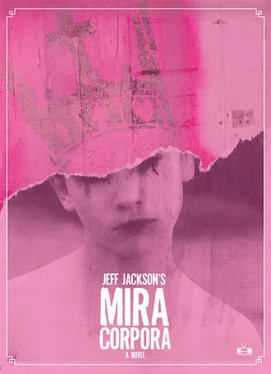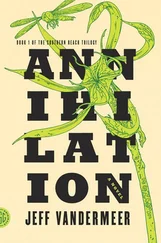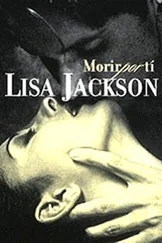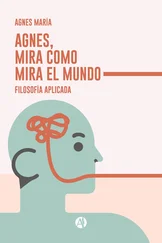Jeff Jackson - Mira Corpora
Здесь есть возможность читать онлайн «Jeff Jackson - Mira Corpora» — ознакомительный отрывок электронной книги совершенно бесплатно, а после прочтения отрывка купить полную версию. В некоторых случаях можно слушать аудио, скачать через торрент в формате fb2 и присутствует краткое содержание. Год выпуска: 2013, ISBN: 2013, Издательство: Two Dollar Radio, Жанр: Современная проза, на английском языке. Описание произведения, (предисловие) а так же отзывы посетителей доступны на портале библиотеки ЛибКат.
- Название:Mira Corpora
- Автор:
- Издательство:Two Dollar Radio
- Жанр:
- Год:2013
- ISBN:9781937512149
- Рейтинг книги:5 / 5. Голосов: 1
-
Избранное:Добавить в избранное
- Отзывы:
-
Ваша оценка:
- 100
- 1
- 2
- 3
- 4
- 5
Mira Corpora: краткое содержание, описание и аннотация
Предлагаем к чтению аннотацию, описание, краткое содержание или предисловие (зависит от того, что написал сам автор книги «Mira Corpora»). Если вы не нашли необходимую информацию о книге — напишите в комментариях, мы постараемся отыскать её.
Mira Corpora — читать онлайн ознакомительный отрывок
Ниже представлен текст книги, разбитый по страницам. Система сохранения места последней прочитанной страницы, позволяет с удобством читать онлайн бесплатно книгу «Mira Corpora», без необходимости каждый раз заново искать на чём Вы остановились. Поставьте закладку, и сможете в любой момент перейти на страницу, на которой закончили чтение.
Интервал:
Закладка:
Now that they’re on my radar, the tags appear everywhere. They blanket the row of abandoned buildings near the park. They’re scrawled over kicked-in doorways, next to corroded fire escapes, across boarded-up windows. They bloom on ravaged walls and overflowing trash cans. An enormous silver crown glints off the bus shelter for the crosstown local. I run my fingers along its lines and trace the contours, trying to read some message in the tack and texture of the paint.
My body starts to shiver. There’s a subterranean surge of excitement as I remove the tape case from my sweatshirt and place it next to the graffiti. After a careful comparison of the handwriting, there’s no doubt: The person who painted these is the same one who left me the cassette.
I want to believe these tags are encrypted personal messages. They’re puzzles to solve. They’re an invitation whose time is running out. I need some space to deliberate, so I hop the nearby fence and wander through the park. I select an empty wooden bench near the playground. I suck on several orange rinds while I try to untangle my thoughts.
I find myself staring at a nearby lamppost. There’s another tag but this one looks different. Maybe it’s a trick of the light, but the image of the crossed-out crown seems to shimmer. I kneel on the asphalt to study it up close. My fingers trace the curves of the design. It has a slippery feel. The tag appears smeared and I can’t figure out why until I look down at my hands. The paint is still wet.
The person must be nearby. I spring to my feet and begin to search the park. Everyone around me becomes a suspect: The dog-walker with three lunging hounds on a single leash; the heavy-lidded woman whose shopping bags encircle her feet; the bum with the rabbinical beard and newspaper shoes who greets passersby with kissing noises.
I exit the park and madly scan the streets. My mind buzzes like a burning beehive. I’m looking for anyone smuggling a can of spray paint. I scrutinize the shifty-eyed punk sprawled in a doorway with his shoplifted cans of warm beer. The Hispanic man perched in front of the bodega, massaging the batteries of his busted cell phone. The drag queen who touches up her rouge while waiting for the express bus. Their blank expressions don’t give anything away. Maybe they’re not part of this game.
I scour the neighborhood, methodically threading my way through the grid of streets and occasionally zigzagging headlong down one of the avenues, but I don’t have any luck and eventually return to my base. When I reach the Chinese restaurant, a pony-tailed Asian waitress is stationed next to the nearby pay phone, chain-smoking a pack of unfiltered cigarettes. It looks like she’s about to say something to me when the phone rings. She places her hand over the receiver in a proprietary way but doesn’t pick it up. While I wait for this curious drama to play out, I stare into the window of the restaurant. A trio of teenagers are huddled around a pot of tea and an order of steamed dumplings. Their fingers are coated in silver spray paint.
I peek my head inside. These two boys and the girl are the only customers in the dingy dining room. They seem lost in heady conversation. A cardboard stencil is propped next to the girl’s tea cup. It’s a king’s crown with a line through it. As I ease myself inside, the metal prayer bell tied to the door handle gives a harsh jingle. The trio spins around.
I stumble a few steps toward them. My mind stammers. I’m dumbstruck, or terrified, or maybe just overexcited. No emotion stands still long enough to name. I have no idea how to explain myself, so I remove the plastic tape case from my sweatshirt and hold it out. By way of introduction.
The trio silently consults one another, then motions me over to their booth. None of them seems surprised by my presence. “We were wondering when we’d run into you,” the girl says.
Looking at them sitting here, next to a fish tank filled with stunted carp and surrounded by strains of pinched Eastern folk music, something occurs to me. The obviousness and enormity of it buckles my knees. In a hushed and imploring voice, I ask: “Did you make the music on this tape?”
It’s impossible to read the contorted shapes their faces make, the cryptic crisscrosses of furrowed brows and creased lips. They look like I’ve just complimented their dead mother’s ass. The girl finally speaks up. “That’s not us,” she says. “The singer on that tape is Kin Mersey.”
The trio introduce themselves. The girl calls herself Lena. Her hair is a tangle of red, yellow, and black ringlets, the roots of previous dye jobs aggressively on display. The ratty locks almost seem like an apology for her delicate and classically beautiful features. The boy caressing the back of her neck is Hank. He flashes a high-wattage grin. His bare arms are covered in elaborately primitive designs, but these interlocking totems resemble magic marker scrawls more than actual tattoos. I try not to stare at the other boy whose disfigured profile seems to be the result of a terrible burn. Markus has sparkling eyes that belie his taciturn expression. He slides over to make room for me in their booth.
Lena takes out a wallet constructed of black duct tape and extracts a photograph that’s been folded into eight equal-sized squares. She arranges the image in front of me. “This is Kin,” she explains.
It’s a grainy shot of a small rock club. There are low ceilings, black curtains tacked against the walls, a set of speakers dangling above the wooden stage. Several pasty guys play an assortment of drums, trumpets, dismantled synthesizers, and cable patches. But the focus is on the lead singer with his frizzy blond curls and a red scarf wrapped around his squat neck. This has to be Kin Mersey — his mouth open wide and his teeth bared. He’s captured mid-yawp. He coddles a battered acoustic guitar in the crook of his arms like a sleeping infant and appears utterly lost in the undertow of the song.
“This is from his final show,” Markus says. “It’s the last confirmed picture of him.”
“He quit in the middle of the tour,” Hank adds. “He sold all his instruments on a street corner and vanished. Nobody has seen him in years.”
I examine the photo more closely, as if it’s one of those optical paintings where you adjust your focus and an embedded image suddenly emerges. There is something unsettling about the way Kin seems so absorbed in the moment, his eyes as white as boiled eggs, rolled back into their sockets.
“Why’d he quit?” I ask.
“Nobody knows,” Lena says. She takes a long sip of tea and swallows hard. I notice the dusting of silver spray paint on her knuckles and the base of the cup.
“I saw the graffiti,” I say. “I wasn’t sure what it meant.”
Lena flips over the photograph of Kin Mersey. On the backside, there’s a smaller image of Kin sitting on a stoop wearing a paper crown on his head. It’s rakishly askew. He probably got it from a fast food restaurant but it still manages to look defiantly regal. “The crown is his symbol,” she explains. “It started as some inside joke, but the image stuck.” As she talks, her hand obsessively traces and retraces the image. “There are rumors Kin is hiding out in one of the nearby projects. We did the tags to get his attention. To coax him out into the open.” She straightens the collar of her immaculately tattered raincoat. “That’s also why I gave you the tape.”
“But why me?”
“You’re on the street,” Lena says. “You know what’s really happening.” She sweeps aside her multi-colored tresses so there’s nothing obscuring her eyes. “You must have heard some stories about Kin. You have to know something.”
Her challenging tone and imploring look make this feel like a test. Though it’s pretty obvious I don’t know a thing, there still seems to be a correct response. I close my eyes and recall Kin’s unearthly voice.
Читать дальшеИнтервал:
Закладка:
Похожие книги на «Mira Corpora»
Представляем Вашему вниманию похожие книги на «Mira Corpora» списком для выбора. Мы отобрали схожую по названию и смыслу литературу в надежде предоставить читателям больше вариантов отыскать новые, интересные, ещё непрочитанные произведения.
Обсуждение, отзывы о книге «Mira Corpora» и просто собственные мнения читателей. Оставьте ваши комментарии, напишите, что Вы думаете о произведении, его смысле или главных героях. Укажите что конкретно понравилось, а что нет, и почему Вы так считаете.












